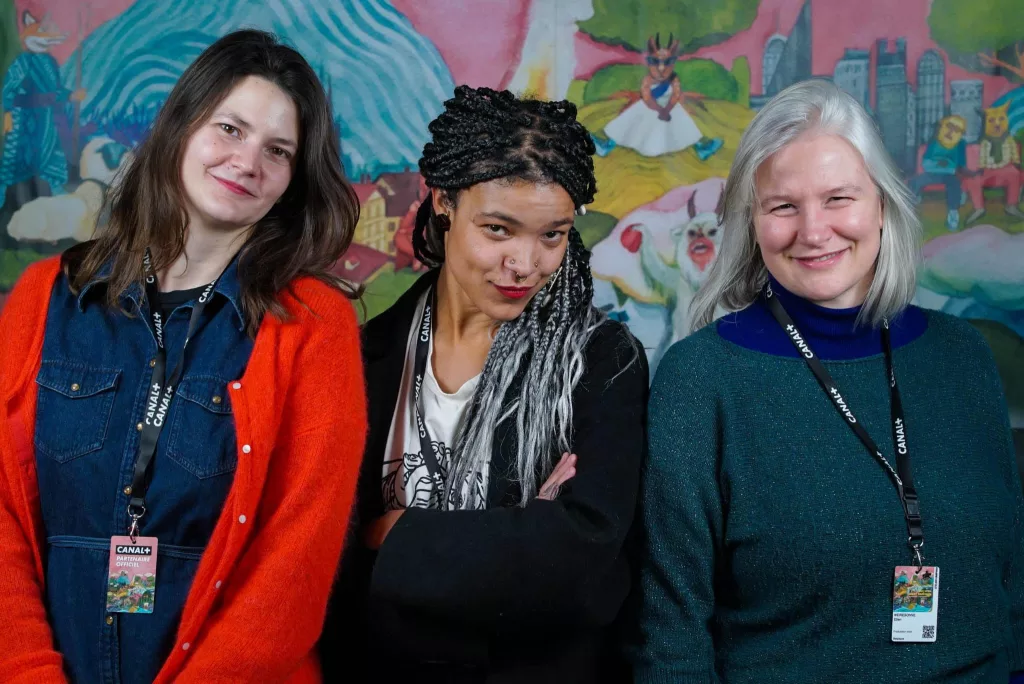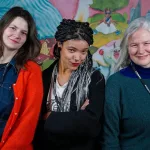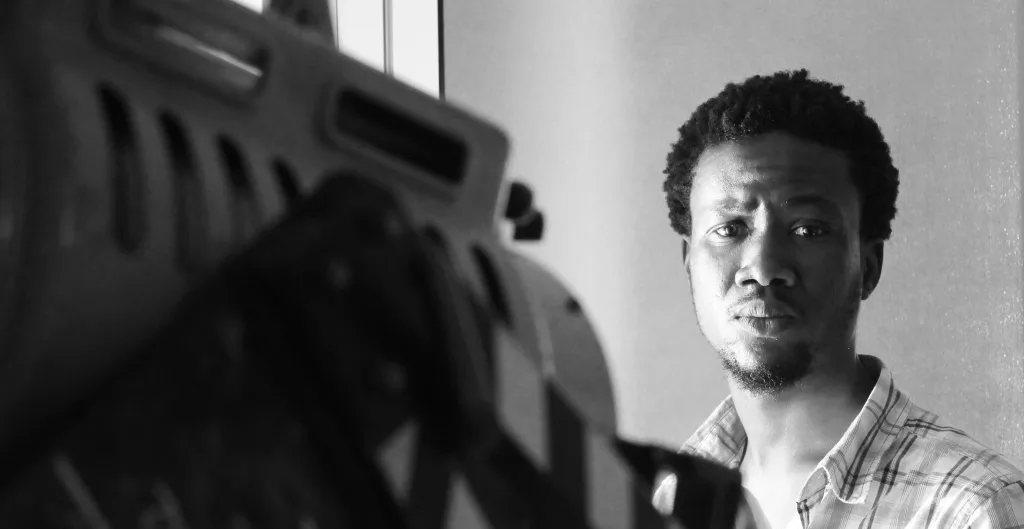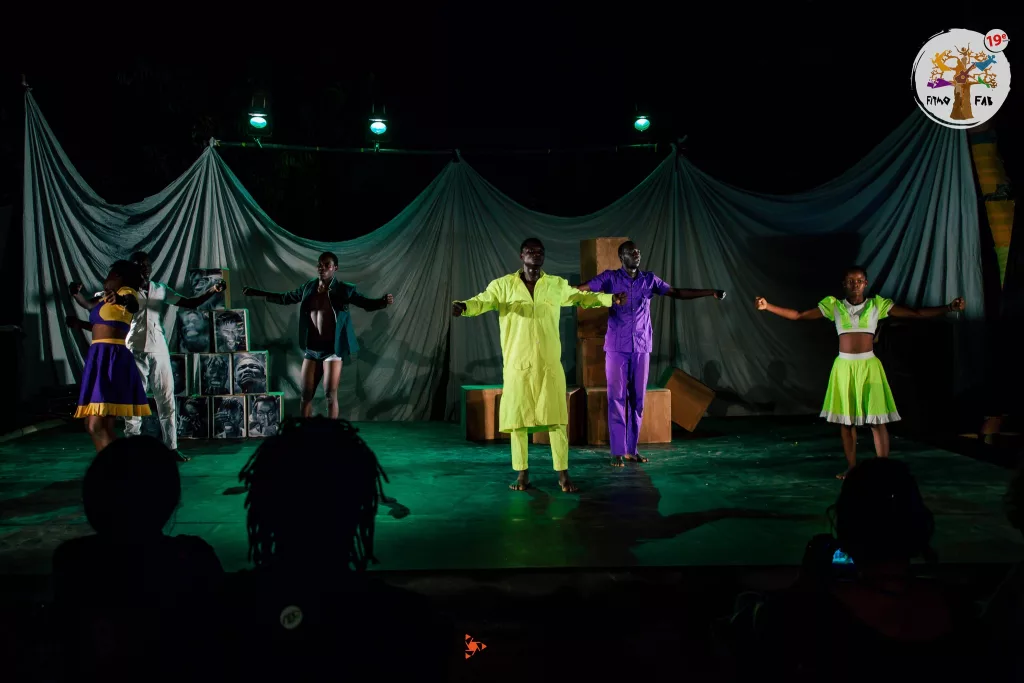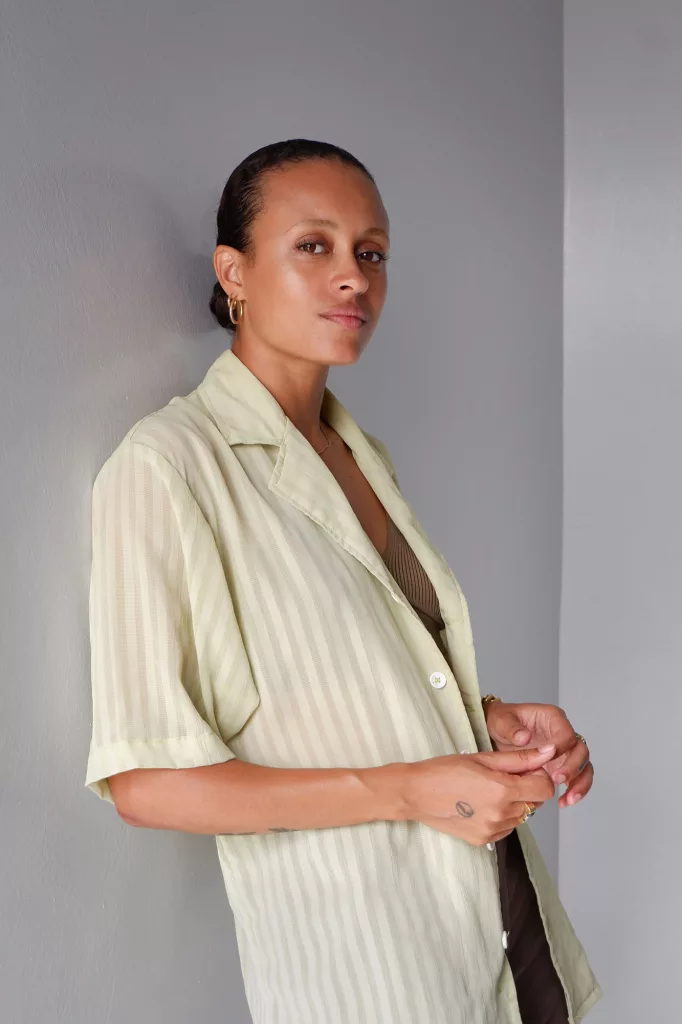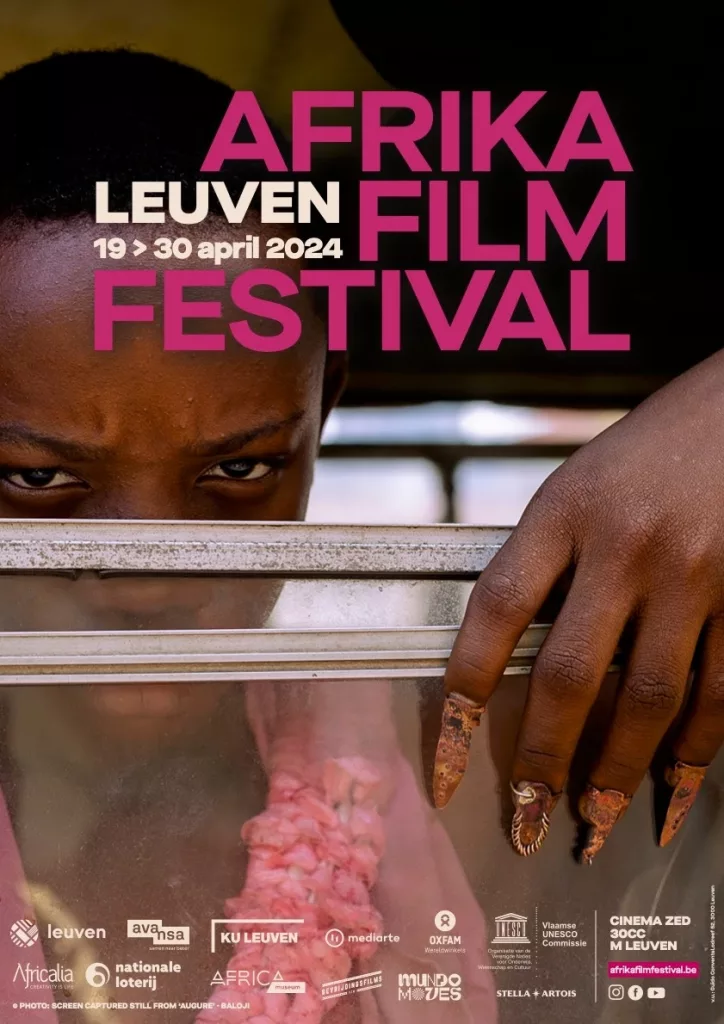Africalia recently engaged with artists who completed a residency program in collaboration with our partners in the Belgium programmeat Atelier Graphoui and Wiels. The aim is to learn more about their artistic backgrounds and practices, as well as the experience of the residency supervised by the partner.
Elen Sylla Grollimund.
Elen Sylla Grollimund works as a socio-cultural facilitator, introducing young people to the world of cinema, photography and radio. In her work, she is very interested in colonisation, which she approaches through the prism of the marketing of cocoa from the time of colonisation to the present day, drawing on her own history and her own mixed heritage. Elen is French-Swiss with Senegalese origins.

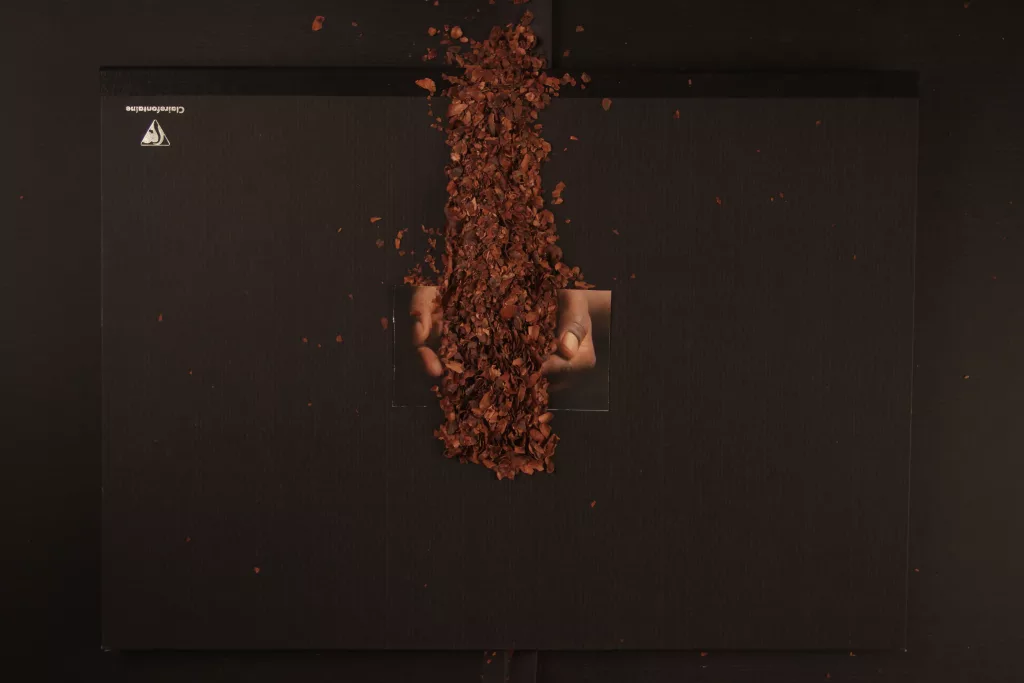
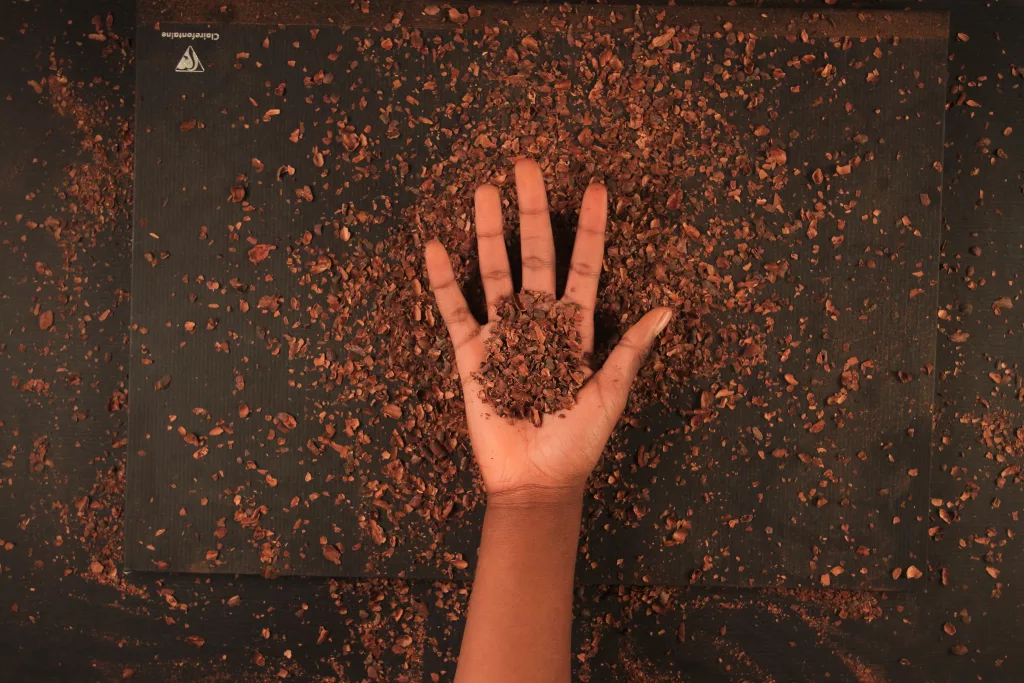
Her love of photography stems from a degenerative hearing disease she was diagnosed with in her teens. After studying photography in Italy and then in France, where she worked for several years, she ended up in Brussels somewhat by chance, on the sound advice of her musician sister, who was on tour in Belgium. Her sister, back in Paris where they lived then, said, "Elen, Brussels is the city for you; I can see you too well there". Heeding this advice, she packed her bags and moved to Brussels, intending to practise photography as part of a group and pass on her skills to beginners. She has now been living there for ten years.
Her film project " Villa Madjo " began to take shape with the birth of her first child, which brought her back to her family heritage, her mixed heritage and her close ties with the African continent. Elen has a white father, born in Côte d'Ivoire, and a mixed-race Senegalese mother, born in France. She has often been asked about her origins without being able to give a clear answer because she was missing certain pieces of the jigsaw. As a person of mixed race in a predominantly Caucasian environment, she was de facto visibly different.
For Elen, transmission is fundamental, beyond the genetic aspect. In fact, it's a word she already used to define herself when she was younger: "transmission". Her rich mixed-race family heritage reflects the complexity of her transmission history, between the colonisation of the France-Africa venture and her Fulani identity. She had a Senegalese grandfather involved in the fight for decolonisation and another grandfather involved in the French colonial project.
The support she received from Atelier Graphoui for her film project enabled her to structure her ideas and organise all the images from the family archives she had collected over the years, eager to create her characters from these memories. "When people tell you memories, you create your images. I wanted to make my puppets based on what I was told." To do this, she worked with artist Carol Maucci Guennal to create the puppets.
She emphasises the importance of Afro-descendants telling their own stories to bring diverse voices and narratives to the table. While she recognises the need for certain "safe spaces" to share these stories, she aspires to break down these silos.
Driven by a desire to pass on her work, last December, Elen travelled to Senegal, to the town of Rao, to give a workshop in animated film, sound and photography at an arts and crafts school founded by her maternal grandfather.
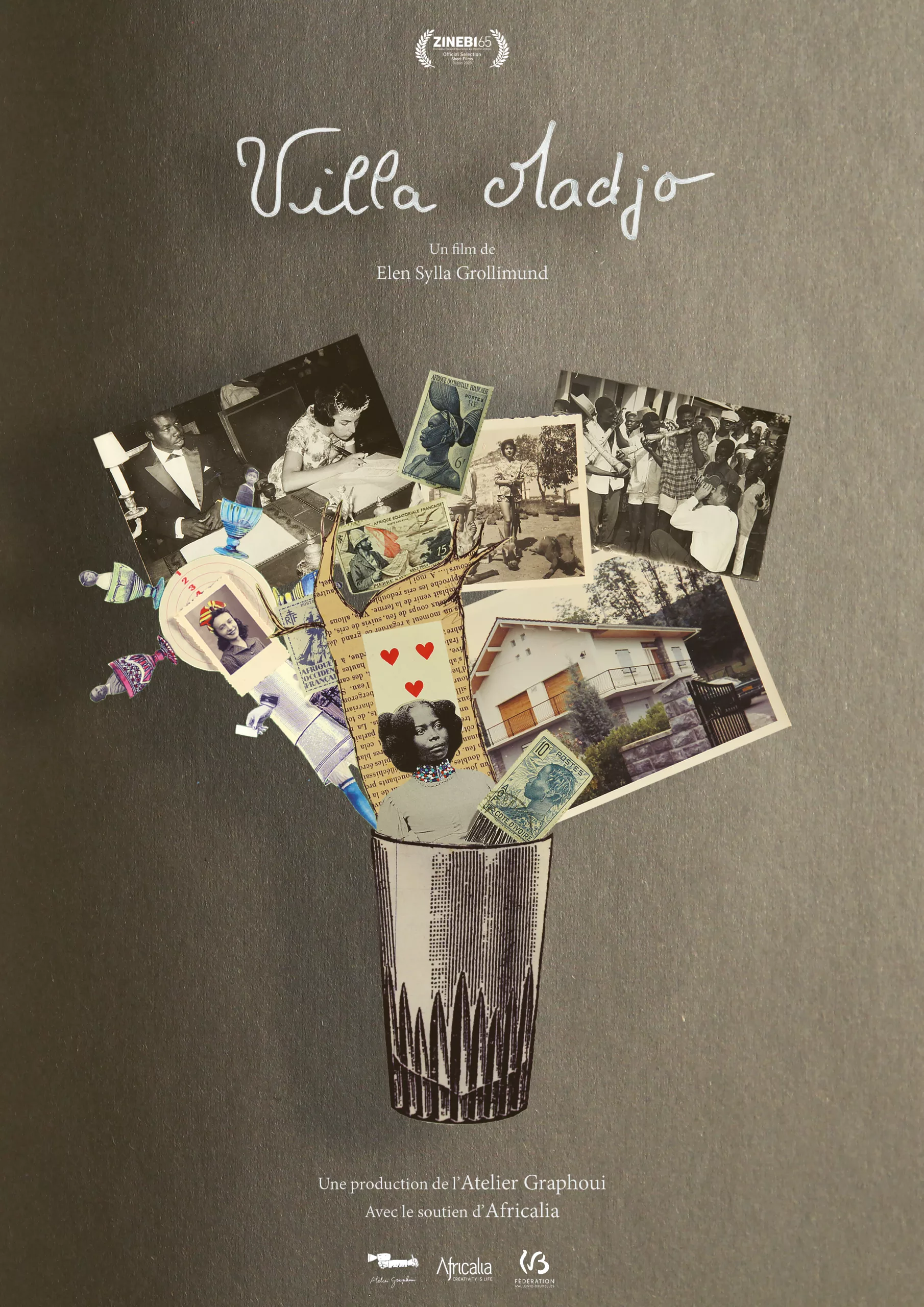
I grew up in a very Western environment and the fact that Africalia wanted to support my project also legitimised my belonging to this Afro-descendant community. In the end, I belong to both parties.
Villa Madjo had its world premiere in Bilbao as part of the international short film competition at the Zinebifilmfest and has since been selected for several festivals, including the Clermont-Ferrand Short Film Festival, the Beijing International Short Film Festival and the Tricky Women/Tricky Realities festival in Austria.
